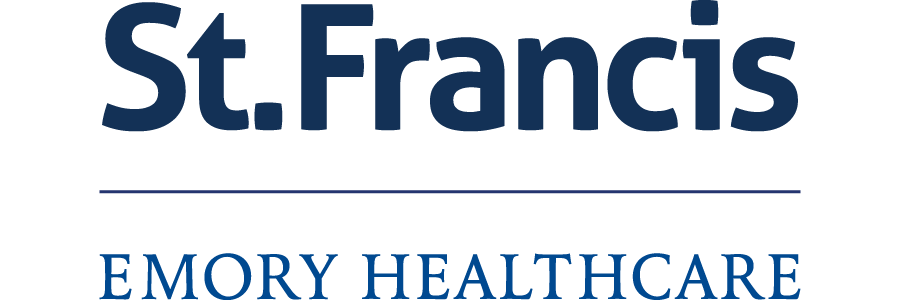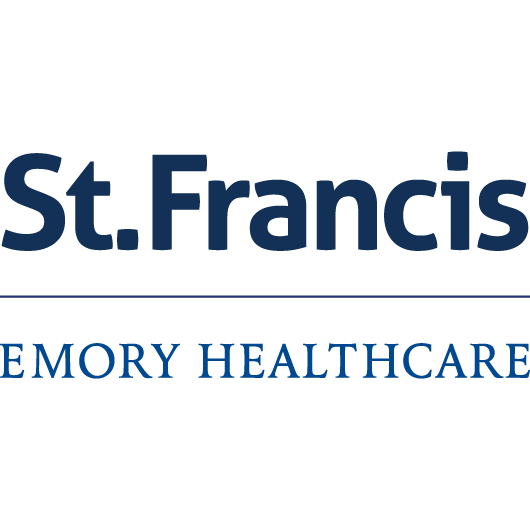Transcranial Magnetic Stimulation
About Transcranial Magnetic Stimulation (TMS)
Transcranial Magnetic Stimulation (TMS) is a non-invasive procedure for patients with major depressive disorder who have tried without success to relieve their symptoms with medication.
Approved by the Federal Drug Administration (FDA) in 2008, TMS therapy is an outpatient procedure that uses pulsed magnetic fields to stimulate nerve cells within the area of the brain thought to control mood. That ultra-targeted pulse, channeled through a coil placed against the scalp, sparks a small arc of electrical activity in the brain, which then sets off chemical changes that elevate a patient’s state of mind.
The procedure has been shown to significantly improve the symptoms of severe depression and lessen their impact. NeuroStar Advanced Therapy, the provider of the system used at The Bradley Center, has now documented over a million treatments here in the U.S. with a rate of remission of 45% and positive results for 68%. Here at the Bradley Center, our remission rate is currently 49%, with a positive result of 67%.
TMS Therapy is a treatment that can be performed in an office setting, under the supervision of a psychiatrist, using a medical device called the NeuroStar TMS Therapy system. NeuroStar TMS Therapy is:
- Non-invasive, meaning that it does not involve surgery. It does not require any anesthesia or sedation, as the patient remains awake and alert during the treatment
- Non-systemic, meaning that it is not taken by mouth and does not circulate in the bloodstream throughout the body.
Patients undergoing TMS sit in a chair, resembling a recliner, while a treatment coil is precisely positioned over their head to emit targeted electromagnetic pulses, similar to those produced by an MRI machine. The patient is fully awake during the 37-minute session. They are able to read, converse, watch videos or listen to music during the brief procedure. When the session is complete, the patient is able to drive back to work or home without difficulty.
The typical initial treatment course consists of at least 5 treatments per week over a 4-6 week period, for an average of 20-30 total treatments. Each treatment session lasts approximately 40 minutes.
TMS Therapy Staff
Psychiatrists
Dr. Jaya John earned a degree in medicine and surgery from the University of Pune. She completed an externship and a second residency in psychiatry at East Tennessee State University. In 2007, she was ranked first among general psychiatry and med-psych residents by the American College of Psychiatrists, based on the Psychiatry Resident In Training examination at ETSU. Dr. John is a member of the American Psychiatric Association and the Southern Medical Association and specializes in adult psychiatry. Dr. Rizwan Khan earned his bachelor's degree in microbiology from the University of Florida, graduating with honors. He earned his degree in Osteopathic Medicine from the Nova Southeastern College of Osteopathic Medicine and then completed a residency in psychiatry from the Medical College of Georgia. He has won numerous awards during his residency, including the prestigious E.J. McRanie Award.
TMS Coordinator
John Roop, MA, LPC, has worked in the mental health field since earning his master’s degree in Professional Counseling from Liberty University in 1997. He obtained his license as a professional counselor in 2002. He has worked as a therapist and case manager in hospital settings, long-term treatment facilities, and the state mental health system. He has also taught full-time at the undergraduate university level and continues to teach part-time.
About Depression
Depression is a serious medical illness affecting more than 14 million American adults every year. Often a debilitating disorder, depression results in a persistent state of sadness or loss of interest or pleasure, which interferes with an individual's thoughts, behavior, mood, and physical health. Learn more about depression symptoms.
In 2000, the economic burden of depression was estimated at $83.1 billion in the U.S., and researchers estimate that by the year 2020, depression will be the second leading cause of disability worldwide.
Depression can be a lethal disease. Each year in the U.S., more than 30,000 people die by suicide, 60% of whom suffer from depression. Overall, women are almost twice as likely as men to suffer from depression; however, some experts feel that depression in men is under-reported. Depression has no racial, ethnic, or socioeconomic boundaries. About two-thirds of those who experience an episode of depression will have at least one other episode in their lives.
While the exact cause of depression is not known, the leading scientific theory is that depression is caused by decreased activity in the neural networks of the brain that regulate emotion and motivation. Increasing levels of neurotransmitters in the brain have been found to reactivate these neural networks or create new networks. Neurotransmitters are chemical messengers that send signals between brain cells. Depression is most often treated with antidepressant medications. It is believed that antidepressant medications work by increasing the levels of these neurotransmitters. TMS offers additional treatment options for people struggling with depression despite traditional medication therapy. Learn about depression treatment options.
More than 4 million patients do not receive adequate benefit from antidepressants and/or cannot tolerate the side effects caused by them. For these patients, they need a new way back.
TMS + YOU
TMS+YOU is an online community and national patient advocacy site for TMS Therapy. Those considering Transcranial Magnetic Stimulation can connect with patients who have had the treatment to answer questions, share insights, and get the latest information.
TMS Therapy Testimonials
“I was severely depressed over a period of three years. I tried several antidepressants, but nothing really seemed to work. I had a severe allergic reaction. My family was very poorly impacted by the whole problem of my depression. By the end of the TSM treatment, things were better than I could have imagined. After that six weeks, I was so excited that my life was starting to resume. It could actually get better and that I had more to look forward to.” – Garret A.
“During that time, it was probably the darkest time in my life. I was sad and miserable all the time. Before when I was going through depression, I felt hopeless. Since TMS, my perspective on life has been so positive that I know there is hope.” – Martha F.
National Media
Transcranial Magnetic Stimulation (TMS) has been featured in several prominent news publications highlighting its success in treating depression. Among these publications and television shows are: Dr. Oz, The Daily Buzz, TIME Magazine, Scientific American, Discover Magazine, and Good Housekeeping. See below for more news stories discussing the latest applications of TMS Therapy.
- 11/23/2016 WHSV: Fishersville Doctors Use New Technology to Treat Depression
- 11/20/2016 Santa Fe New Mexican: Bipolar Disorder Defies Diagnosis and Treatment
- 10/27/2016 NY Post: Magnets Cured My Depression
- 10/24/2016 WRDW: New Treatment Helps Depression and Reduces Military Suicides
- 9/27/2016 WNDU: Magnets Offer Hope for Major Depression
- 9/21/2016 Danbury Daily Voice: Woman Shines Light On Depression Treatment
- 9/14/2016 Troy Media: Brain Stimulation Used to Treat Depression with No Side Effects
- 9/7/2016 Medical Xpress: Stimulating Possibilities Arise From Brain Study
- 8/16/2016 Bel Marra Health: Magnetic Stimulation May Significantly Improve Tinnitus
- 7/19/2016 Scientific American: Why I Get My Brain Zapped
- 7/14/2016 Daily Mail: Electric Shock Therapy Helps Paralysed
- 7/13/2016 Texomas Homepage: New Treatment For Depression
- 7/11/2016 News Medical: Non Drug Treatment for Postpartum Depression
- 6/25/2016 Scientific American: Scientists Developing a "Brain Circuits First" Approach to Mental Health
- 5/20/2016 Psychiatry Advisor: TMS Effective for Major Depressive Disorder, Generalized Anxiety Disorder
- 5/17/2016 EMPR: Positive Results Seen with NeuroStar TMS for Postpartum Depression
- 4/22/2016 TechieNews: Get Rid of Your Depression with Neurotransmitter
- 4/21/2016 NPR: Electric Currents And An 'Emotional Awakening' For One Man With Autism
- 4/14/2016 EmaxHealth: Brain Stimulation May Help People with Eating Disorders
- 3/26/2016 Medical Daily: Brain Stimulation Targets Impulses Associated With Eating Disorders
- 3/24/2016 PR Newswire: Patients Treated with NeuroStar TMS May Not Need Antidepressants
- 3/15/2016 Huffington Post: Can Magnets Heal a Broken Heart?
- 3/10/2016 Calgary Herald: Calgary Professor Confronts 'Battleground' of Youth Mental Health
- 3/03/2016 WUSF News: People Fighting Depression Discover Little-Known Treatment
- 2/22/2016 Oxford Eagle: Anna Downs Enjoys Helping Individuals as a Nurse
- 2/20/2016 Brain Blogger: Mental Illness - One Treatment to Cure Them All, One Network to Bind Them?
- 2/19/2016 The Washington Post: The Mind's Biology
- 2/12/2016 MedPade Today: Wise Buy? Repetitive Transcranial Magnetic Stimulation
- 2/11/2016 Greenwich Sentinel: Greenwich Psychiatrist Uses Magnetic Stimulation to Treat Depression
- 2/03/2016 BBC: Rethinking Anorexia Nervosa
- 2/02/2016 The National Law Review: rTMS in Alleviating Mild TBI Related Headaches
- 2/02/2016 WFLA: Treating Depression Without Medication
- 1/08/2016 KOMO News: Depression treatment has success when medication doesn't
- 12/11/2015 CBC News: New depression therapy should be covered in NL
- 12/10/2015 Smithsonian Magazine: Could Magnets Help Treat Drug Addiction?
- 12/04/2015 US News Health: Magnetic Brain Stimulation Might Treat Addiction
For more news articles featuring TMS, please see NeuroStar's Press Coverage page.

